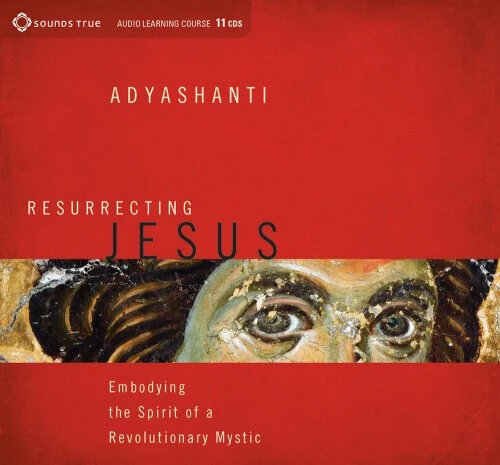
“If Jesus Were Alive Today” by Adyashanti — from 'Resurrecting Jesus: Embodying the Spirit of a Revolutionary Mystic' (EXCERPT)
I often wonder what would it be like if Jesus were alive today. Imagine Jesus—who wasn’t a Christian, after all, but a Jew—entering a church today, going up to the pulpit and giving a sermon. Can you imagine how challenging that would be for the congregation? Can you imagine how uniquely different that sermon would be from what many of us received in church?
BE A SUPPORTER OF ADYA’S WORK

What, in God’s Name, is Christ Consciousness? (Part 1) by Seán ÓLaoire
Quite frequently, in homilies, lectures and writings, I use the phrase, “Christ Consciousness.” Some weeks ago, a parishioner asked if I might deliver a full ‘sermon’ on the topic. So, I did; and this blog, in two parts, is the result.
I don’t believe for a moment that Jesus of Nazareth was the only ‘avatar’ to exemplify and teach on this topic. Very similar ideas can be found in the terms, “Buddha nature” (in Buddhism) and “Self-realization” (in Hinduism). And I would claim that even the Christian term “Salvation”, properly understood, is really the same idea. Of course, all of these articulations of the great mystical traditions have been misinterpreted and even abused as control mechanisms. More about that anon.
BE A SUPPORTER OF FR. SEAN O`LAOIRE’S WORK

“Ambiguity And Paradox, Mystery And Language” by Julia Corbett-Hemeyer
In my previous role as a hospital chaplain here in Muncie, I was with a family gathered at the bedside of a dying family member, keeping vigil as families do at that point. The conversation and associated emotional tenor changed back and forth, sometimes quite rapidly, between sadness, grief and mourning their loved one’s impending death, and laughter, sometimes deep belly laughs, as they brought to mind humorous anecdotes from his life. At one point, one of the daughters looked at me and said something to the effect that “You must think we’re nuts by now with all these conflicting emotions.” I assured her that I thought nothing of the sort, that what they were experiencing was quite common and indeed healthy.
BEA SUPPORTER OF JULIA CORBETT-HEMEYER’S GOOD WORK
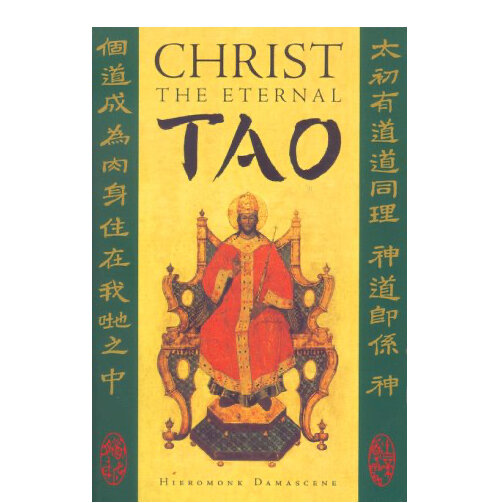
“Christ The Eternal Tao” - (excerpt) by Hieromonk Damascene
In modern Western society, many people turn away from the Christianity of their formative years because they find its truths smothered under an unreal kind of religiosity. They see that the people in the churches are not changing and becoming better, but rather are comforting themselves and each other la their unregenerate state. They find that the Spirit of the Western churches is, at its Core, little different from that of the world around them. Having removed from Christianity the Cross of inward purification, these churches have replaced a direct, intuitive apprehension of Reality and a true experience of God with intellectualism on the one hand and emotionalism on the other.
PURCHASE: “Christ The Eternal Tao”
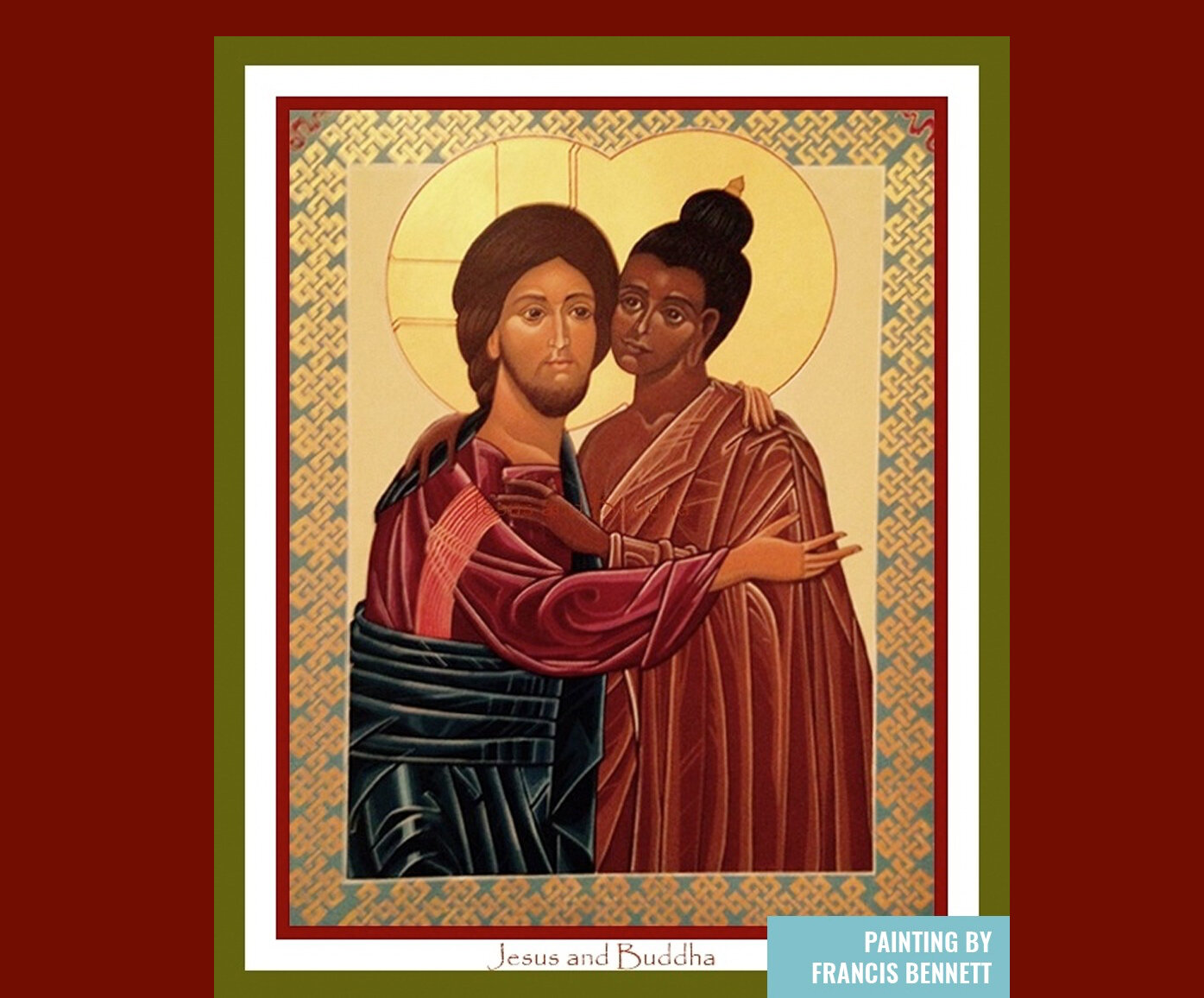
“Wouldn’t It Be Nice if Christians Became Taoists?" Hope for the Emerging Christian Church" By Bruce Epperly and Jay McDaniel
The emerging church in the West – the church of spiritual seekers who seek to share in the journey of Jesus but not impose it on others -- is already Taoist in tone. What remains is for participants in this new and emerging church to turn eastward, learning from Asian Christians and the cultural traditions they bring with them, and thus learning to gentle their enthusiasm with the humility of stardust. What remains is for them to realize that one of the best ways to “proclaim the gospel” is not to proclaim at all, but rather to travel a path of gentleness, which is its own proclamation, its own good news.
BE SUPPORTERS OF BRUCE EPPERLY AND JAY MCDANIEL’S WORK

"Belief in Inerrancy May Be Hazardous to Faith (PART 2) — Problems with Biblical Inerrancy" (from: Religious Tolerance.org)
Intentional translation errors: No Bible translation into English is free of bias. Essentially all versions of the Bible are the product of translators who come from a similar theological background. Being human, they sometimes produce versions of the Bible that tend to match their own belief systems. For example:
The original Hebrew and Greek texts contain a number of different concepts for the place where people will live after death: Sheol, Gehenna, and Hades. Some translations transliterate these place names, and so they appear in the English text in their original forms as "Sheol," "Gehenna," and "Hades." The reader is thus aware that they refer to different beliefs about life after death. But…
SPECIAL THANKS TO AND PLEASE SUPPORT RELIGIOUS TOLERANCE.ORG

"Belief in Inerrancy May Be Hazardous to Faith (PART 1) — Problems with Biblical Inerrancy" (from: Religious Tolerance.org)
Why belief in biblical inerrancy can be hazardous to one's faith:
When a person considers the Bible to be totally inerrant in its teaching of theology, morals, beliefs, geology, geography, history, etc., it may leave the person's faith vulnerable. Even one proven error could shatter their entire belief system and make the Bible seem useless.
Mark Mattison wrote:
"If in actual fact Caesar Augustus did not really order a census while Quirinius was governor of Syria [or] if it turns out there really was only one Gadarene demonaic rather than two, then the entire Bible becomes worthless and every tenet of Christian faith falls flat. If one single discrepancy emerges, it's all over. This makes Christian faith an easy target for skeptics, and drives believers to unimaginable lengths to 'defend' the Bible." 1
SPECIAL THANKS TO AND PLEASE SUPPORT RELIGIOUS TOLERANCE.ORG

7 Reasons Why Evangelicals Should Read Thomas Merton by Michael Wright
I first learned about Thomas Merton when I skipped chapel at my Christian high school. I started to meet weekly with a kindhearted Bible teacher who looked through my cynicism and saw a desire for a deeper spiritual life. I’m grateful for those conversations—especially the day he told me about a book written by Merton called No Man Is An Island. As I started reading it, I was excited to find a monastic writer with piercing insights into my own inner life and a Christian mystical tradition markedly different from the subculture around me. It was providential timing: I was slipping into depression that would last for years, and Merton quickly became a friend and guide through a spiritual wilderness. So today, in honor of his birthday and his lasting impact on the wayfarers and mystics among us, here are seven reasons why evangelicals should read Thomas Merton:

“Losing Jesus’ Cultural & Theological Baggage” by Adyashanti
It wouldn’t matter if he grew up a Jew, or a Christian, or a Buddhist, or a Hindu, because he’s speaking about the structure of religion itself—its hierarchy, its tendency to become corrupted by human beings’ desires for power, for influence, for money. ...

"A Revolution of Authority" by David Steindl-Rast
The editorial staff at What Is Enlightenment? magazine ask: These days there is a wary climate regarding people who hold themselves out as spiritual authorities. There is a tendency to be very skeptical about the possibility that someone could be a genuine authority. Yet traditionally it’s been fairly common for people to seek out a spiritual teacher for guidance, and to commit themselves to that teacher. What are your thoughts on this?
Brother David replies: Some twenty years ago, there was a much greater openness to making anybody who came along and seemed to have some great credentials for teaching your guru. Nowadays many people have been burnt and they will look twice. That is skepticism, and it can easily become cynicism
BE A SUPPORTER OF BR. DAVID STEINDL-RAST, OSB and A NETWORK FOR GRACEFUL LIVING

"Letter to a Christian Teacher on Biblical Inerrancy" by Keith Basar
Dear Friend,
Often I think that our inescapable cultural baggage, meaning our fragile egos and the influence of all who've crossed our way, "make being certain a necessity." Clearly, this is a reality that can never be — thus an exclusive product of our own heads!
What I have questioned for decades is that the scriptures, beautiful and inspiring as they may be, are simply the product of a theologically divided church (367AD), and a power hungry Emperor Constantine (which Luther and those who followed him viewed with anathema) who sought to bring political stability and power to the western Roman world.

“Richard Rohr and the Alternative Orthodoxy” - The RobCast - Rob Bell Episode 86 |
ALTERNATIVE ORTHODOXY
Methodology: Scripture as validated by experience, and experience as validated by tradition, are good scales for one’s spiritual worldview.
Foundation: If God is Trinity and Jesus is the face of God, then it is a benevolent universe. God is not someone to be afraid of, but is the Ground of Being and on our side.
Frame: There is only one Reality. Any distinction between natural and supernatural, sacred and profane is a bogus one.
Ecumenism: Everything belongs and no one needs to be scapegoated or excluded. Evil and illusion only need to be named and exposed truthfully, and they die in exposure to the light.
Transformation: The separate self is the problem, whereas most religion and most people make the “shadow self” the problem. This leads to denial, pretending, and projecting instead of real transformation into the Divine.
Process: The path of descent is the path of transformation. Darkness, failure, relapse, death, and woundedness are our primary teachers, rather than ideas or doctrines.
Goal: Reality is paradoxical and complementary. Non-dual thinking is the highest level of consciousness. Divine union, not private perfection, is the goal of all religion.
BE A SUPPORTER OF FR. ROHR AND MR. BELL’S WORK

"The Surrender to Transformation" by Rev. Emily Wright-Magoo
Come into this space, where today we consider the surprise, the surrender, the gift… that is part of the process of transformation.
Let mystery have its place in you; do not be always turning up your whole soil with the plowshare of self-examination, but leave a little fallow corner in your heart ready for any seed the winds may bring, and reserve a nook of shadow for the passing bird; keep a place in your heart for the unexpected guests, an altar for an unknown God. – Swiss philosopher and poet Henri-Frederic Ariel
STORY
Once upon a time, a stream, from its course in far-off mountains, passing through every kind of countryside, at last reached the sands of the desert.
Just as it had crossed every other barrier, the stream tried to flow across the sand, yet as fast as it ran into the sand, its waters disappeared.
BE A SUPPORTER OF EMILY WRIGHT-MAGOO’S WORK
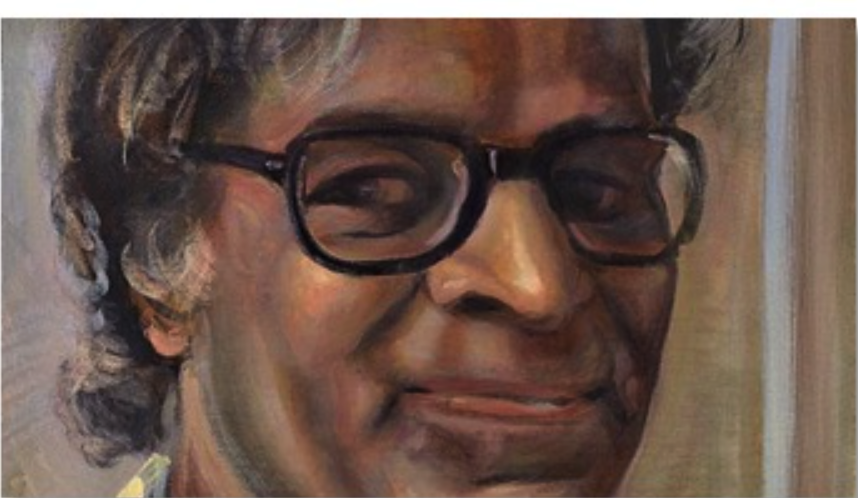
"Anthony de Mello" by Joan Chittister
Anthony DeMello, the Jesuit spiritual teacher and psychotherapist, died suddenly of a heart attack on June 2nd in 1987 at the age of 56. In memory of his life, printed below is a piece Sister Joan wrote about him for an article entitled "The Spiritual Art of Three Modern Masters" that appeared in the U.S.Catholic magazine in June, 1994. The other two masters were Dorothy Day and Thomas Merton.
I never met the man and I never made one of his retreats. I never read anything he wrote and I never studied his curriculum vitae. I've never talked to anyone who talked to him and I've never heard one of his tapes. But few people have had a greater impact on my life. DeMello was not a designer of spiritual systems. He was not a lawgiver. He was not a cheerleader for a collection of esoteric spiritual exercises. No, Anthony DeMello was a teller of ancient stories whose stories rearranged the human landscape. It is in the stories that he told that I met Anthony DeMello and knew at once that he was unforgettable.
BE A SUPPORTER OF SISTER CHITTISTER’S WORK
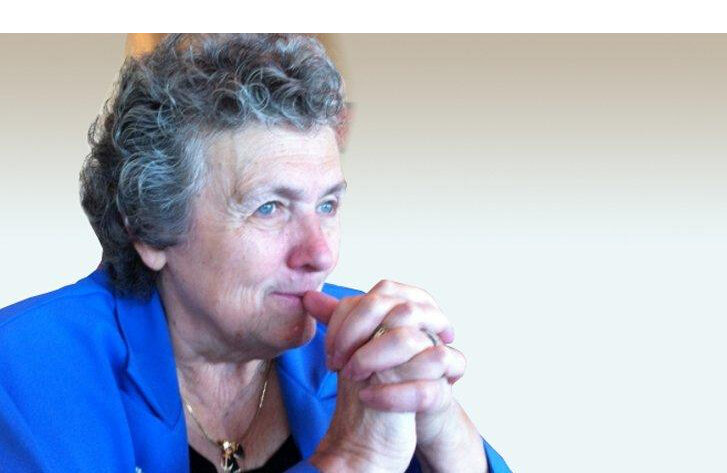
“The God of Many Tongues” by Sister Joan Chittister
Each great spiritual tradition, in its own way, suggests a model of what it means to be a holy person. Each of them shines a light on the human ideal. Each of them talks about what it takes to grow, to endure, to develop, to live a spiritual life in a world calculatingly material and sometimes maddeningly unclear.
Every major spiritual tradition—Hinduism, Judaism, Buddhism, Christianity, and Islam—brings a special gift to the art of living the spiritual life. Each of them refracts the light of its own spiritual wisdom texts in particularly sharp and distinct ways. Each of them strikes a different tone in giving the great truths of life that form a chord, a symphony of truth.
BE A SUPPORTER OF SISTER JOAN CHITTISTER’S WORK

